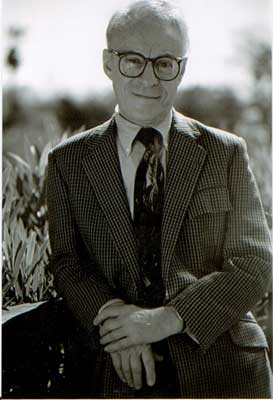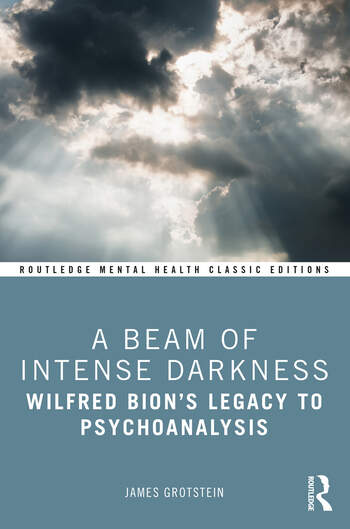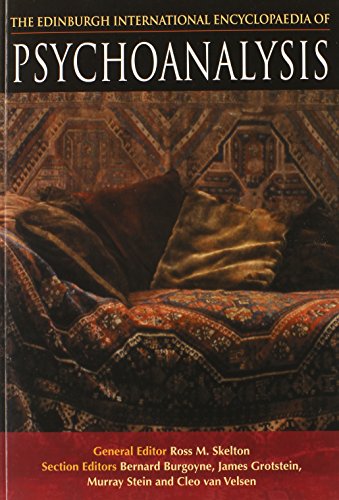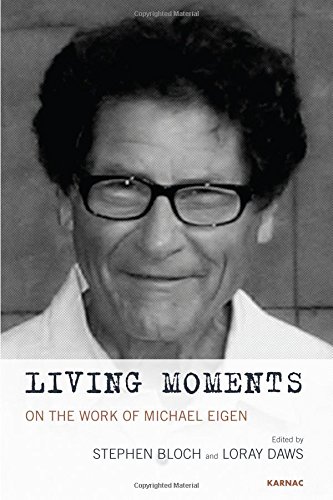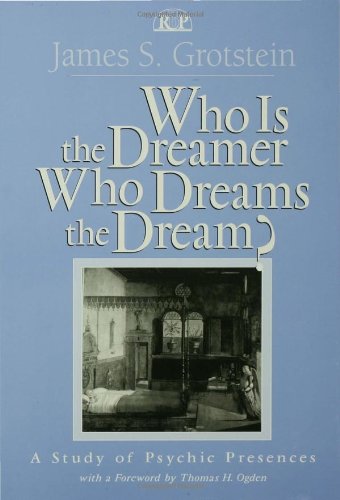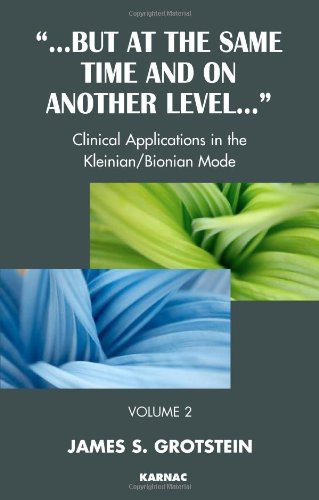A Beam of Intense Darkness: Wilfred Bion's Legacy to Psychoanalysis
Once, following an analytic session of mine, Bion, unusually for him, went to his bookshelf, pulled out a German edition of Freud's correspondence with Lou Andreas Salome and translated it for me on the spot. I made instant notes about it moments afterwards: "When conducting an analysis1, one must cast a beam of intense darkness so that something which has hitherto been obscured by the glare of the illumination can glitter all the more in that darkness." I have come to realize that this was the statement that was to become the Ariadne's thread that would run through Bion's later thinking and is what he surely meant by his now famous exhortation to the analyst to "abandon memory and desire" while conducting an analysis "so as to have Faith in the creative response of his own unconscious."
This has become the "Age of Bion". Why? I remember all too well that when I edited Do I Dare Disturb the Universe? A Memorial to Wilfred R. Bion in 1981, the publisher withdrew publication rights because he had already lost so much money on his publication of Seven Servants, a compilation of Bion's four major books on psychoanalysis. How different times are now - but why? What is behind this surge in "Bionianism"? Why has Bion become the sage of this Zeitgeist in psychoanalytic thinking? His writing style is terse, obscure, dense, and wide-ranging - not exactly reader-friendly, yet many analysts and psychotherapists as well as laymen now avidly read him, and the forthcoming republication of his collected works promises to be a sell-out. Why? - because Bion brought the Renaissance to psychoanalysis!
It is my impression, but not only mine, that Bion has subtly, dramatically, and profoundly redefined psychoanalysis more than any other thinker (perhaps even Freud), has freed it from its moorings in linear science and positivism, and has given it its first theory of epistemology, i.e., how we come to feel (to "learn from experience", emotionally). Bion was both an autodidact and a polymath. His enormous range of erudition evolved into a dazzling display of learning, curiosity, and creativity from the vast sweep of the horizon of Western and also Eastern thought, both ancient and contemporary. As one surveys his writings, it becomes clear that Bion began by re-reading (he will later say "dreaming") the seminal works of Freud and Klein and reworked them into a most unique and extensive supraordinate metapsychology, one that was to become a masterpiece in regard to the emergence of a new epistemology that was based on the individual's capacity to bear the emotional anxiety of his confrontation with life (which he was to call "O") and allow him or herself to accept and process the resultant emotions (emotional truths) which inescapably emerge from this confrontation so that they can become transformed into "digestible" mental elements before they are relegated to their final destination: dream elements, thoughts, feelings, memory, and reinforcement for the contact-barrier between consciousness and the unconscious. Our ability to suffer our pain (anxiety about our emotional truths) also allows us to "learn from experience."
Where Bion significantly differs from Freud and Klein is in the concept of what constitutes the content of the repressed. To Freud and Klein the repressed consists of the drives. To Bion it is the Absolute Truth about Ultimate Reality. Further, however, and this is where godhead is involved, Bion believes the unconscious contains the untold riches of Plato's Ideal Forms and Kant's noumena or things-in-themselves. If we were to personify the Ideal Forms and the noumena, we would have the godhead, the phantasied Intelligence that "knows" all the Forms and noumena - but exists in a state of incompletion. When the mortal aspect of a human being experiences an emotional event, e.g., the infant feeling hungry and then finding the breast that can satisfy the hunger, a psychic event takes place in which the immortal, infinite but incomplete portion of the individual realizes (becomes "realized" from inner to outer reality) its fulfillment and thereby becomes completed as a conception. What Bion, like Prometheus, has done is to bring the "fire from Heaven" (the Ideal Forms and the noumena) to mankind and enrich us with an entirely new vein of imagination and creativity. In brief, infinity itself is the content of the repressed, if not the repressed itself.
Bion discovered two types of epistemology. One was Cartesian in so far as he formulated that there were such things as "thoughts without a thinker" or "wild thoughts" seeking a mind to think them. This was a unique idea. He prioritized the thoughts without a thinker and conceived that a mind had to develop to think them. His second venture into epistemology was his concept of "become", which he borrowed from Plato. When the analyst "dreams" the analytic session while listening to his analysand, he is ultimately able to "become" (not identify with) the analysand - without the intrusion of his senses. In other words, he is able from within himself to resonate with the analysand's emotional state. In order to achieve this resonance, he must abandon memory, desire, understanding and preconception so as to achieve the requisite state of reverie.
Finally, Bion's revision of Freud's theory of dreaming is profound and far-reaching. Bion tells us that we dream by day as well as by night, that we must dream the ongoing emotional residues left over from our daily lives so that the continuous flow of dreaming can mediate them and give them personal meaning. Bion thus renders dreaming as an epistemological function, one that subserves mentation unconsciously and reflection consciously. Further, the analyst must dream the analytic session (actually, the analytic session's "O") while listening to the analysand, and the analysand likewise dreams his emotions in the act of freely associating. I leave this subject abruptly because of space limitations but hope the reader will pay close attention to it as he or she reads this work, where I hope it will be seen that this revision of Freud's theory of dreaming, and "O" are perhaps Bion's greatest discoveries.
1 I learned later upon reading another translation of Freud's letter that Freud had referred to "reading a book," but I am sure I heard Bion say "analysis." Also, he (Bion) later cited this passage as "...blind myself artificially to focus all the light on one dark spot" (1970, p. 57).
??
??
??
??


